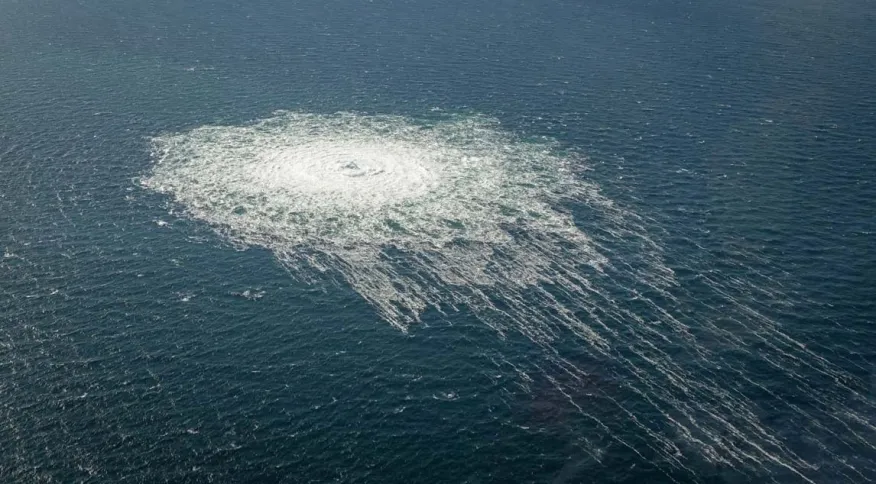
By Jeffrey D. Sachs, liberal American economist
My name is Jeffrey D. Sachs. I’m a university professor at Columbia University. I specialize in global economics, including global trade, finance, infrastructure, and economic policy. I appear before the UN Security Council in my own name. I do not represent any government or organization in the testimony I will give.
The destruction of the Nord Stream pipelines on September 26, 2022 constitutes an act of international terrorism and poses a threat to peace. It is the responsibility of the UN Security Council to raise the question of who may have committed this act, in order to bring the perpetrator to international justice, seek compensation for the injured parties and prevent future actions of this kind.
The consequences of Nord Stream 2’s destruction are enormous. They include not only the vast economic losses related to the pipelines themselves and their potential future use, but also the growing threat of all kinds to cross-border infrastructure: undersea internet cables, international pipelines for gas and hydrogen, cross-border power transmission, wind farms offshore, and more. The global transformation to green energy will require considerable cross-border infrastructure, including in international waters. Countries need complete confidence that their infrastructure will not be destroyed by third parties. Some European countries have recently expressed concern about the safety of their offshore infrastructure.
For all these reasons, the UN Security Council investigation into the Nord Stream explosions is a high global priority.
Destruction of the Nord Stream pipelines required a high degree of planning, expertise and technological capability. Nord Stream 2 pipelines are an engineering marvel. Each pipeline section is 4.5 cm thick laminated steel and has an internal pipe diameter of 1.15 meters. The duct is encased in 10.9 cm thick concrete. The weight of each concrete-lined pipeline section is 24 metric tons. The Nord Stream 2 pipelines, about 1,200 kilometers long, contain around 200,000 pipelines. The pipelines are at the bottom of the sea.
The destruction of a heavy laminated steel pipeline, encased in concrete, at a depth of 70 to 90 meters, requires highly advanced technologies for transporting the explosives, diving for the installation of these explosives and detonation. Doing so undetected in the exclusive economic zones of Denmark and Sweden greatly increases the complexity of the operation. As several senior officials have confirmed, such an action must have been carried out by a state-level actor.
Only a handful of actors at this level have the technical capacity and access to the Baltic Sea to carry out this action. These include Russia, the United States, the United Kingdom, Poland, Norway, Germany, Denmark and Sweden, individually or in combination. Ukraine lacks the necessary technologies for this, as well as access to the Baltic Sea.
A recent Washington Post report revealed that the intelligence agencies of NATO countries privately concluded that there is no evidence that Russia carried out this action. This is also consistent with the fact that Russia had no obvious motives for carrying out this act of terrorism on its own critical infrastructure. Indeed, Russia is likely to bear considerable expense in repairing the pipelines.
Three countries purportedly conducted investigations into Nord Stream terrorism: Denmark, Germany, and Sweden. These countries presumably know a lot about the circumstances of the terrorist attack. Sweden, in particular, perhaps has more to tell the world about the crime scene, which its divers investigated. However, instead of sharing this information with everyone, Sweden has kept the results of its investigation a secret from the rest of the world. Sweden refused to share its findings with Russia and refused a joint investigation with Denmark and Germany. In the interest of global peace, the UN Security Council must demand that these countries immediately hand over the results of their investigations to the UN Security Council.
There is only one detailed account so far of the Nord Stream’s destruction, the one recently presented by investigative journalist Seymour Hersh, ostensibly based on information leaked to Hersh by an unnamed source. Hersh attributes the destruction of Nord Stream to a decision ordered by US President Joe Biden and carried out by US agents in a covert operation that Hersh describes in detail. The White House described Hersh’s account as “completely and utterly false,” but offered no information that contradicted Hersh’s account and offered no alternative explanation.
Senior US officials made statements before and after the destruction of the Nord Stream that showed US sentiment about the pipelines. On January 27, 2022, Under Secretary of State Victoria Nuland tweeted: “If Russia invades Ukraine, one way or another, Nord Stream 2 will not advance.” On February 7, 2022, President Biden said, “If Russia invades… there will be no more Nord Stream 2. Let’s end this.” When asked by the reporter how he would do that, he replied, “I guarantee we’ll be able to do that.”
On September 30, 2022, immediately after the terrorist attack on the pipeline, Secretary of State Antony Blinken declared that the destruction of the pipeline is “also a tremendous opportunity. It is a tremendous opportunity to once and for all remove dependency on Russian energy and thereby take away from Vladimir Putin weaponizing energy as a means of advancing his imperial designs.” On January 28, 2023, Under Secretary Nuland stated to Senator Ted Cruz: “I am, and I think the government is, very pleased to hear that Nord Stream 2 is now, as you like to say, a piece of metal at the bottom of the sea”.
Such language is not at all appropriate in the face of international terrorism. I hope that the US, along with all other members of the Security Council, will condemn this heinous act of international terrorism and join in an urgent UNSC-led investigation into this international crime in order to determine the truth. The truth is not yet known to the world, but it is knowable.
More than ever, the world depends on the UN Security Council to do its job of preventing the escalation of a new world war. The world will be safe only when permanent members work together diplomatically to resolve global crises, including the war in Ukraine and rising tensions in East Asia. The UN Security Council provides the single global venue for this peace-affirming work. More than ever, we need a healthy and functioning UN Security Council, fulfilling the mission assigned to it by the UN Charter.
An objective UN Security Council investigation into Nord Stream terrorism, in which all countries contribute what they know, is important for global trust in this body and, more importantly, for global peace and sustainable development.
Originally Posted in Other Words
Join our WhatsApp group, clicking on this link
Join our Telegram channel, click this link
Source: https://www.diariodocentrodomundo.com.br/explosao-do-nord-stream-quem-teme-a-verdade-por-jeffrey-d-sachs/

